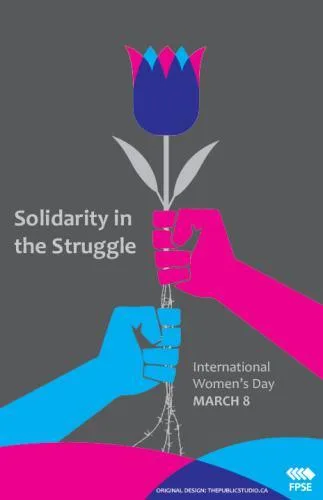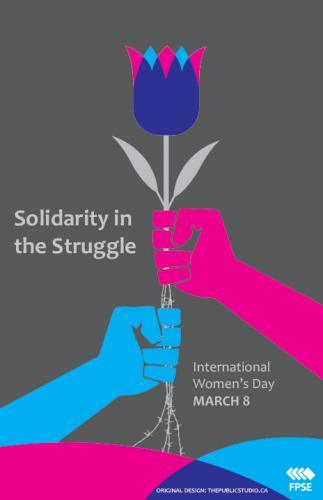International Women’s Day has been celebrated for over 100 years. With its roots in the early union movement, today is a time to reflect upon the history of women’s struggles for equality. International Women’s Day is a time to remember that all women, regardless of the monetary value assigned to women’s work (or lack thereof), make critical contributions to our families, to our communities, to the economy, and to society at large.
However, women continue to face many barriers to equal participation in society. Women remain the primary caregivers for children and elders, yet in British Columbia, there is no affordable child care program to support women in the paid workforce. Women’s average annual earnings are still only approximately 71% of men’s, and while several Canadian provinces have pay equity legislation, British Columbia is not one of them. Women in unions tend to fare better than non-union women, and we must keep fighting to extend the benefits of unionization to all.
Women still experience gender-based violence, at home and in our communities. On campuses, there are too many stories of both students and educators being subjected to harassment and assault, with inadequate protection and responses from the institutions.
Social and economic inequality is even greater when we consider intersecting oppressions. Many women face multiple barriers to equal participation, such as aboriginal women; women of colour; lesbian, bisexual, two-spirited or trans women; and women with disabilities.
Despite these challenges, we celebrate progress when we can. For the first time in Canadian history, we have three women premiers and a federal cabinet with 50% women, including Aboriginal women. After decades of disproportionate levels of violence, there will finally be a federal inquiry into missing and murdered Aboriginal women and girls. For the first time ever, British Columbia recently elected an Aboriginal woman to the Legislature. While we might have wished these successes to have come sooner, they are no less worthy of celebration today.
As educators, we are uniquely positioned both to witness the barriers women face, and to take action for positive change. We see daily the struggles among our colleagues and students and we have opportunities to engage those same colleagues and students in dialogue to challenge outdated ideas and behaviours. As union members, we stand in solidarity with all women in the struggle.
This year, join us in celebrating International Women’s Day. You can find events in your local communities here. Together, we make a difference.

